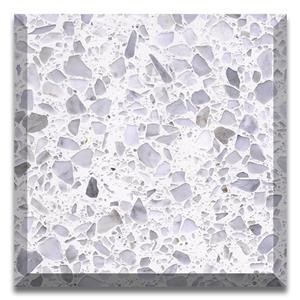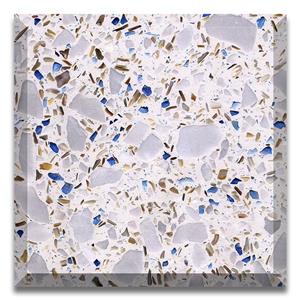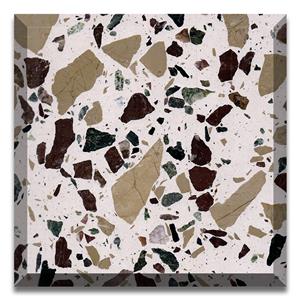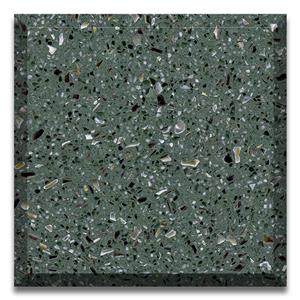Is Quartz Better Than Granite?

When homeowners embark on remodeling a kitchen or bathroom, the countertop material they choose often has long-term impact. Two of the most common contenders are quartz and granite. Many people ask is quartz better than granite, especially when they weigh style, durability, cost, and maintenance. This article breaks down everything you need to know, including how granite vs quartz countertops perform in real homes.
What Are Granite and Quartz Countertops?
Granite is a completely natural stone, quarried from the earth. It's cut into granite slabs near me or from distant quarries, then polished and treated to become kitchen or bathroom surfaces. Because it's formed naturally, granite features unique variations in color, pattern, and texture in each slab.
Quartz (engineered quartz) is manufactured: crushed quartz crystals are mixed with resins and sometimes pigments. The result is a non-porous, consistent surface. Materials like white quartz countertops are possible because manufacturers can produce uniform coloring and design. Quartz aims to mimic stone or marble but with more control over pattern and tone.
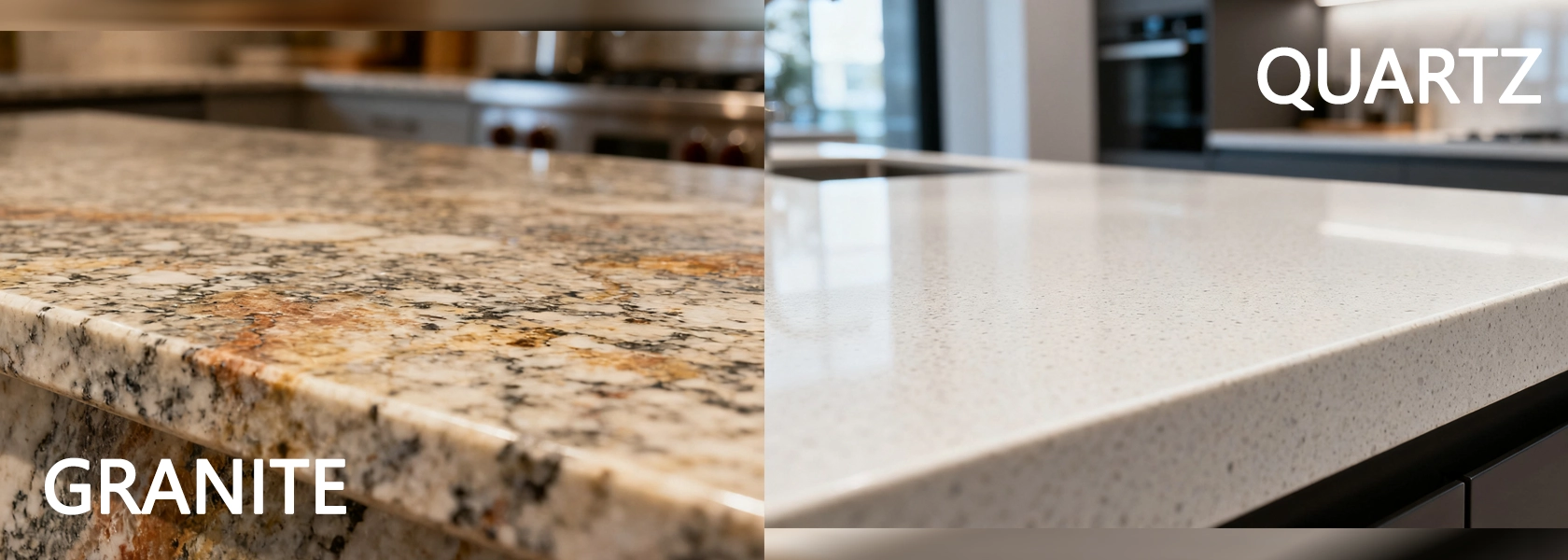
Comparing Key Factors
Below are the major factor to consider when evaluating these tow materials:
| Factor | Granite | Quartz |
Appearance&Style | Rich,natural veining;no two slabs are same.If you go back go look for granite slabs near me,you'll see huge variety in texture and pattern. | Very consistent.Offers many design possibilities,the "white quartz countertops"look is very popular for a clean,modern aesthetic. |
Durability & Maintenance | Strong, heat-resistant (can handle higher temperatures), though it is porous. Needs periodic sealing to prevent stains, bacteria. Chips or cracks can happen especially at edges. | Non-porous, easier to keep clean, more stain-resistant. Doesn't require sealing. But can be sensitive to very high heat—hot pans placed directly can damage resin. |
| Price & Cost Over Time | The granite price depends heavily on rarity, color, and transportation cost. Some slab types are expensive. Installation adds cost. Over time, you also incur maintenance cost (sealants, repairs). | Quartz price per square foot is often slightly more predictable. While high-end quartz sells at premium, lower grades are more accessible. In maintenance savings (no sealing, less cleaning work), over time quartz can be more cost-efficient. |
Heat, Scratch, and Stain Resistance | Excellent heat resistance; more forgiving with hot cookware. Moderate resistance to stains, but sealing helps. Scratches possible but somewhat less likely to show in busy pattern. | Very resistant to stains and moisture; scratching is less likely but under extreme conditions or abuse could still happen. Less heat tolerant than some granites. |
Environmental & Longevity Considerations | Natural, durable, long lifespan. Quarrying has environmental impacts (transport, extraction). But granite is recyclable / reusable in some scenarios. | Engineered product uses resins and maybe some recycled content. Less natural, but very long-lasting. Non-porous nature reduces chance for bacterial growth, so hygienic benefits. Also less frequent replacement. |
Who Should Choose Which?
Knowing the typical performance helps guide decision based on your priorities:
If you value natural variation, heat resistance, authentic stone appearance, and don't mind a bit of maintenance (sealing, careful cleaning), granite may be your better option.
If you prefer minimal upkeep, a clean and uniform aesthetic (especially if you like looks such as white quartz countertops), and want more predictable cost over time, then quartz might be better.
Also consider how trendy designs around you are. In many markets, buyers search for durable, low-maintenance kitchens, so comparing granite vs quartz countertops what people are already buying can give insight. If many homes in your area have quartz, installing quartz could help resale. If granite is cherished locally, then going natural could be a selling point.
Practical Advice Before Buying
Always visit local stone yards or showrooms. Search for granite slabs near me so you can see real examples. Photography and catalogs can mislead due to lighting.
Ask for samples or small offcuts. See how they age over time (in your home lighting, with your appliances around).
Get quotes for both materials: include fabrication and installation, edge profiles, cut-outs for sinks, etc. Compare full costs, not just material.
Consider warranty and care instructions. For quartz vs granite, the warranty on resin/crafted surfaces may differ. Ask also about sealing for granite, and whether quartz surfaces are treated for scratch or heat.
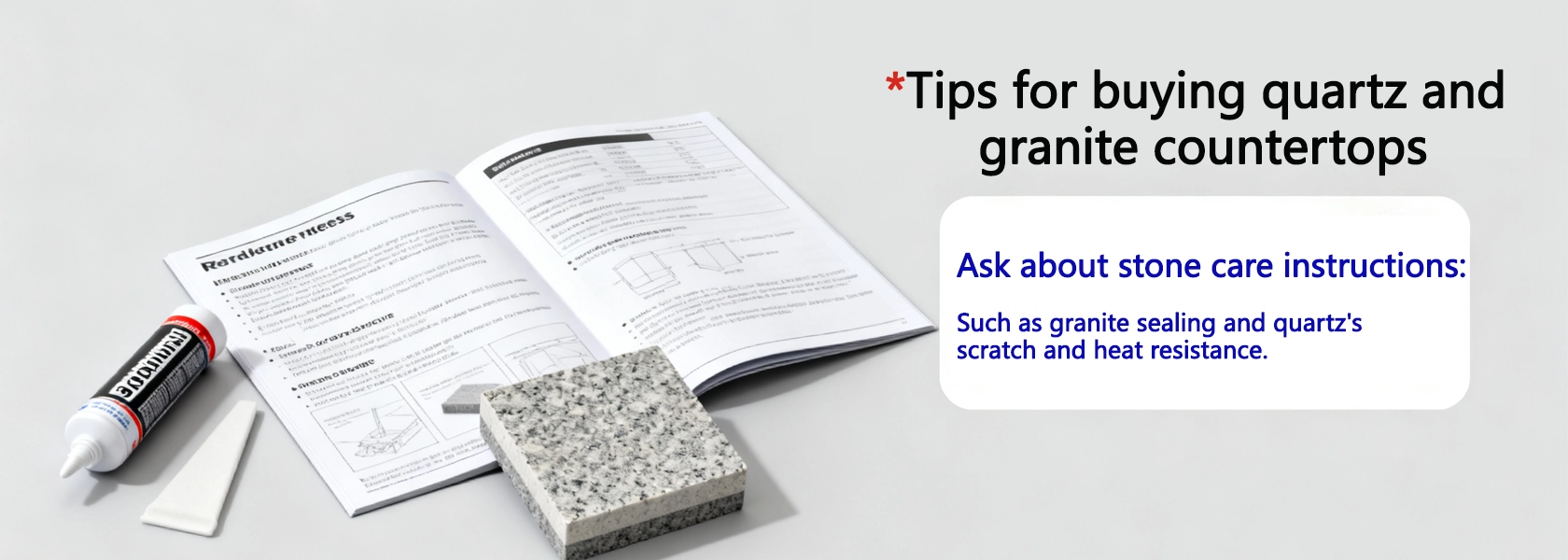
Conclusion: Is Quartz Better Than Granite?
So, is quartz better than granite? There is no one-size-fits-all answer. For many homeowners, quartz offers significant advantages: ease of maintenance, uniform look (especially in popular choices like white quartz countertops), and predictable cost. On the other hand, granite shines in its natural beauty, exceptional heat resistance, and unique variation.
If forced to generalize:
For someone who wants low maintenance, clean lines, and consistency → quartz might be the better investment.
For someone who values authenticity, natural stone character, and is okay with upkeep → granite may offer more satisfaction.
Ultimately, the best choice depends on your style, your budget (including quartz price and local granite pricing), and the priorities in your lifestyle. Use the insights here, go view materials locally, compare granite slabs near me, and decide which material aligns best with your needs.


